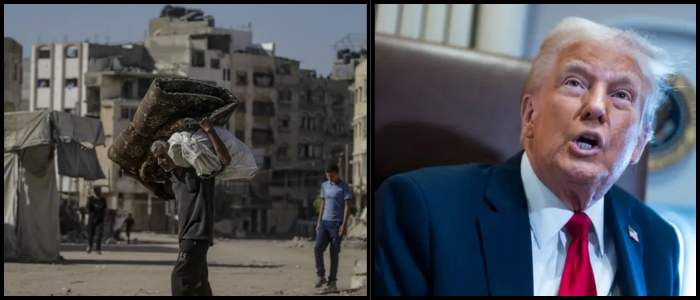Israeli Prime Minister Benjamin Netanyahu recently expressed some optimism that it is possible that an agreement to release hostages could be reached "in the next days." Additionally, former US president Donald Trump has stated publicly that there is a "really good chance" of reaching a deal for peace. These meetings represent a critical moment in the effort to end fighting, and are occurring alongside the second anniversary of the October 7- 2023, Hamas attack in southern Israel, which killed approximately 1,200 people and led to the kidnapping of 251 people.
High Hopes of an Agreement to Exchange Hostages
During the second day of talks, Egyptian and Qatari mediators held separate talks with both Israeli and Hamas delegations. Senior Israeli officials have confirmed that the early part of the conversations will focus on hostage issues, before moving on to other subjects. Former President Trump's 20-point peace framework, prepared in coordination with Prime Minister Netanyahu, calls for an immediate cessation of fighting and the release of 48 hostages—20 believed to be alive—in exchange for hundreds of Gazans in prison. Following a proposal that both sides would accept, total humanitarian assistance would be allowed for entry into the Gaza Strip. Hamas would not control the administration of Gaza in the peace plan, but it would leave open the prospect of a state in the future.
Trump urged everyone to "move fast," and expressed the belief that phase one of the plan could be done "within the week." Trump also acknowledged that "Hamas has been agreeing to things that are very important," indicating there had been some success in moving toward the plan. Key participants include US special envoy Steve Witkoff, Jared Kushner, and Qatari foreign minister Sheikh Mohammed bin Abdulrahman Al Thani.
In response to Trump's negotiations, Hamas declared its willingness "to release all Israeli prisoners, living and dead," under Trump's economic exchange formula, assuming certain conditions were met. Hamas indicated it would allow the administration of Gaza to be carried out by a neutral technocratic Palestinian body and with the support of Arab and Islamic countries. Yet, it had not accepted the 20-point plan and more importantly, was not committing to disarming and not stepping back from the governance of Gaza, or the two vital terms of the 20-point plan.
Netanyahu reiterated his opposition to a Palestinian state, stating, "It is not written in the agreement. We said that we would oppose a Palestinian state strongly." Nevertheless, many leaders from the United Nations Secretary General, Antonio Guterres, to UK Prime Minister, Sir Keir Starmer, welcomed Trump's efforts as an important new opportunity for peace. The Palestinian Authority called Trump's plan "sincere and determined," and Iran, long a Hamas ally, indicated it might not oppose it.
In the latest information from the Gaza Health Ministry, increasingly dire statistics from the start of Israel's military engagement against Gaza revealed 67,160 people have died, including 18,000 children; 21 Palestinians were killed and 96 wounded in the past 24 hours alone; Gaza City remains heavily bombarded, and reports indicated that aid trucks have been denied access to enter over the last four weeks. Hundreds of thousands have fled south to humanitarian areas; however, many remain trapped within areas of conflict.
While the conditions are dire, there is still more hope that these latest negotiations in Egypt could finally lay the groundwork for a permanent peace deal.
World

Trump Confident Gaza Peace Deal Within Reach

Negotiations to end the Gaza war resumed Tuesday at Egypt's tourist resort town of Sharm El-Sheikh. Delegates from Israel, Hamas, Egypt and Qatar continue informal talks led by the US about a peace plan. Discussion has focused on establishing "field conditions" under which all Israeli hostages would be released in exchange for Palestinian prisoners.















